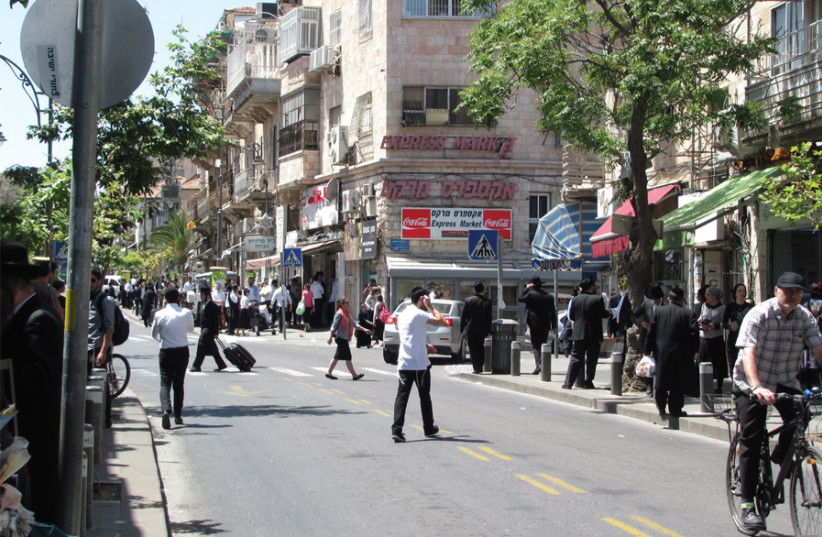Israel must heed A-G on gender segregation, interior minister says
Interior Minister Moshe Arbel instructed regional and local authorities on Sunday to heed a 2019 directive from then-attorney-general Avichai Mandelblit regarding gender segregation in public cultural events.
The letter comes as the issue of gender separation in the public sphere was brought into the spotlight following incidents on Yom Kippur where congregants and protesters clashed over segregation in public spaces.
The main incident occurred as Yom Kippur began when a large service was held in Dizengoff Square for the holiday’s opening prayer of Kol Nidrei. Despite bans on gender segregation at the event issued by both the Tel Aviv Municipality and the High Court of Justice, some congregants tried to set up a partition for separation between men and women. In response, a group of protesters disrupted the prayer service and clashed with the congregants.
Announcing regulations during holiday season
Arbel sent out his letter on the first day of Hol Hamoed Sukkot, a time when many religious and cultural events are planned across the country in honor of the holiday.
“Unfortunately, the citizens of Israel are exposed to violence daily from people who want to pull to the extreme on both sides and crumble the unifiers of Israeli society regarding separate cultural and religious events,” wrote Arbel. “Working according to the instructions of the attorney-general will allow every sector to receive municipal services legally, and the clarity will restore public order and decrease the tension and anger that have unfortunately characterized Israel recently.”

The instructions Arbel referred to were issued by Mandelblit in 2019 following a meeting with various legal and judicial officials on gender segregation in public.
According to the instructions, local authorities are only allowed to hold gender segregated events when they are sure that all or a significant part of the target audience will not attend the event if it is mixed.
In terms of voluntary separation in which the attendees are intentionally separating based on gender, there is less of an issue, Mandelblit said, but emphasized that a mixed section should be made available for people who don’t want to separate, and that both gender segregation and modest dress couldn’t be enforced at such events.
In cases where the event is being held with segregation, Mandelblit highlighted that equality between men and women regarding accessibility and amount of space still had to be maintained.
Regarding open public spaces where other people are free to be such as parks, gender segregation is more complicated and a final decision would be made based on how much other people would have to interact with the event, the space it takes up, and how long the event is expected to last.





Comments are closed.